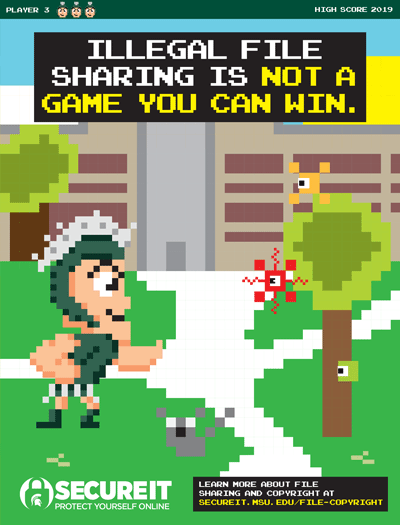File Sharing and Copyright
Illegal file sharing involves pirating and sharing copyrighted files, like music, movies, and software, without owning the copyright or license to do so.
Copying and sharing files are popular ways hackers can transmit viruses and other malicious software to your computer or mobile device.
Read what to do if you receive a DMCA complaint from MSU.
To know...
You may be unknowingly sharing files if you have file sharing software installed on your computer.
- Peer-to-peer software often installs spyware that reports on your computer usage, delivers advertising and other unsolicited files, or allows others to tap into your computer for personal and confidential information often without your knowledge.
- When you put music, movies, video games, or other software on your computer without a license or other permission, it's considered theft by copyright holders and federal courts.
When MSU receives Digital Millennium Copyright Act (DMCA) complaints from copyright holders, it is required by the DMCA to remove or disable access to the infringing material.
- Copyright holders and trade associations representing copyright holders scan the MSU network to identify the transfer of pirated files containing copyrighted materials.
- When outside organizations identify the IP address involved in the transfer, they send a DMCA takedown notice to the student's Internet service provider, in this case Michigan State University.
- To comply, MSU notifies students involved in DMCA complaints and disables network access to devices which held the IP address at the time of the infringement.

